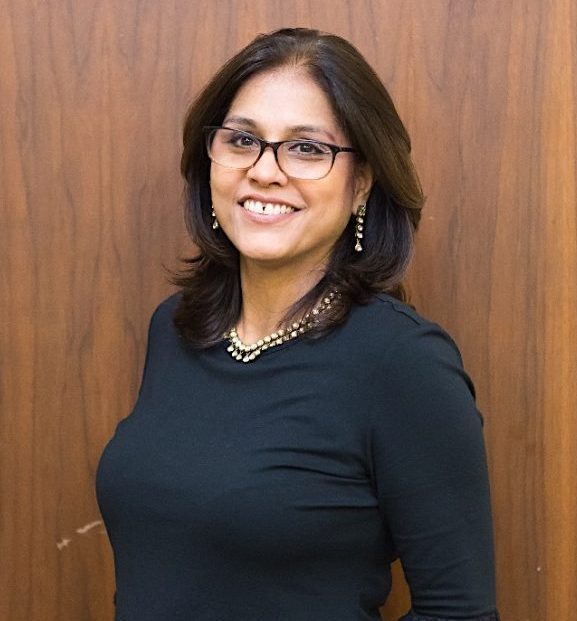The truth is out. The personal brand is hard at work, when the professional is in a forced lockdown mode, as we are, in these Covidian times. To this, Zarina Stanford says, that the LinkedIn profile is the storefront of capability, experience and talent, enabling discovery, enticing attention, provoking interest. As an awarded marketing leader, she should know.
As a Professor at NUS, Singapore, Anuprita Bhomick already has a thriving alternate career, outside of her day (and, sometimes, night) job at Google. Additionally, she is a mentor to several people. She does not feel the need to use the downtime to further fine tune her personal brand. She does that continuously. Crisis or not.
So, Anuprita didn’t go into the work floor one day stating that she is developing her personal brand. Instead, she went around doing what she loves. And in the process, she started getting noticed. She created a positive reputation for herself, which bit-by-bit developed into increased mind share for what she stood for. As a mentor, she contributes to the success and professional growth of her mentees. And by unlocking their potential, she builds value for herself. This again rolls back to her personal brand, taking it a notch high, moving her into the influencer bracket.
That is what the personal brand is about. Not a showy, glitzy, superficial presentation of one’s experience, but an articulation of the contribution that one brings to business, teams and people.
How did Anuprita start? Not waking up one morning declaring that she is going to build her brand. Recognizing her value proposition, understanding her capability, then gradually, building her professional assets with a clear vision on her career goals. This alongside being purposefully active on social media, ensuring visibility, advocating for her company, engaging with her network to establish presence, voice and reach.
Krusha Sahajwani Malkani is fully aware of the power of social media for professional success. She journals keenly, mapping her journey towards career goals. With a growth mindset and a learning orientation to ensure relevance, she actively takes steps that safeguard her career. This, while she is mentally prepared to accept change that comes with tough times. A budding author having published her first e-book, she is sharing this downtime with her love of writing while building her initiative for women called Pink Thread.
Though Heather Saville Gupta has spent a fair bit of time working on her LinkedIn profile, she is open to enhancing her personal brand further, articulating it with more writing and blogging. Remaining relevant is something that she understands clearly. Her post-graduate studies and offering pro bono coaching adds up.
Similarly, for Mariko Braswell. She is seen as an industry mentor for startup boot camps and more recently, a hackathon. Working the personal brand and optimising LinkedIn is a business normal for her.
Many professionals shun the personal brand. They shy away from it, thinking it is unnecessary, outside of ‘work,’ unrelated to their profession. Little realising that the personal brand is an essential tool kit in professional maintenance.
Amidst the global lockdown people have the availability of this unused time on their hands, the headspace and the bandwidth to focus on the future of their work and their personal brands, which incidentally the virus has hastened to a new urgency.
Something that Prachi Panda finds herself helping her network with. Pointing them in direction of a coach and sometimes a mentor and on an occasion or two, over this lockdown, supporting others upgrading their CVs. An activity that was being pushed away or deferred to another time, the personal brand is a topic of active interest, she says.
Abhilasha Jha, clearly appreciates that building presence on LinkedIn is a step forward, in direction of building her profile. A similar sentiment is elicited by Deepa Soman who wants to enhance her LinkedIn presence. She has been toying with the idea of videos, to augment writing, which is her default mode of expression. During this downtime, she wishes to (re-)calibrate her approach and path for greater professional actualisation.
Earlier this year, Rachele Focardi resigned from Universim, where she worked for 15 years. And starting mid-2020 is set to branch out on her own. These moves were a part of her career plan. The onset of COVID-19 has seen the tumbling of most plans. Not for Rachele. In this chaos, she finds a new purpose. In the role that she carved out, she now sees herself as a major contributor to the shifts that the pandemic is creating. It is her open mind and her soon-to-be published book on the multigenerational workforce, as the harbingers of her Career 2.0. On the threshold of her new professional path, she acknowledges that the personal brand, something that she consciously works on, will require new investments in positioning herself, as an entrepreneur, post-COVID-19.
As we progress post-pandemic, the gig will be further normalised and WFH more legit. What, then, will be the differentiating elements to choose one worker from the other? On what basis is that decision taken? That part is fulfilled by what is found online of the candidate. What comes up when the name is searched is the inflection point for talent acquisition.
A strong personal brand has the potential to grow careers, differentiate between candidates, unlock opportunities and grow connections. The personal brands market capabilities to the people who need them.
If the personal brand is underselling your potential and promise, now is the time to give it love. By being in lockdown, what we are really doing is safeguarding our health, defending ourselves against the deadly COVID-19 virus. Are we doing the same to protect our careers to combat the negative talent environment, post COVID-19?
(The article is part of a series of perspectives as a result of the Coronavirus lockdown)


